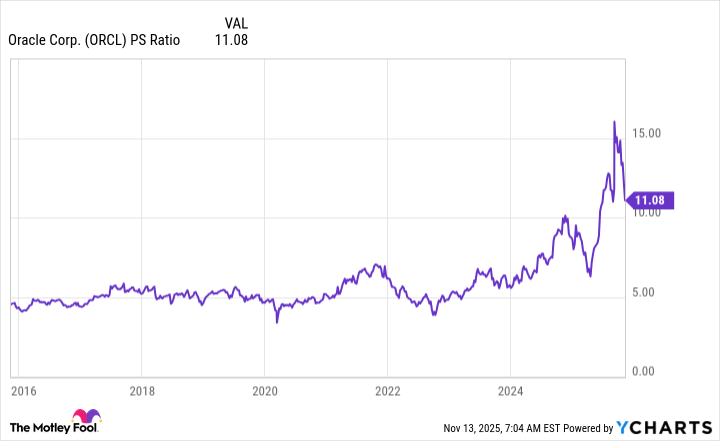In recent years, several technology companies have pushed the general market higher, in part as investors rushed to get in on potential artificial intelligence (AI) winners. Companies from Nvidia to Taiwan Semiconductor play key roles in this high-growth market, and they've seen both revenue and their market value take off.
Why are investors so enthusiastic about AI? Because the technology promises to streamline many tasks, resulting in efficiency, and even lead to game-changing innovation. All this is favorable for corporate earnings, and, therefore, for stock performance. This movement is far from over, with analysts forecasting a trillion-dollar AI market by the start of the next decade.
That means that Apple, Nvidia, Microsoft, Alphabet, Amazon, Meta Platforms, and Taiwan Semiconductor may welcome a new member to the $1 trillion club. Let's meet the unstoppable player that could join them by 2030.

Image source: Getty Images.
The $1 trillion club
First, a quick note about the "$1 trillion club" -- it isn't an actual club that exists. Instead, it's a way to refer to the companies that have seen their market values soar into trillion-dollar territory. They are all well-established players with track records of earnings growth, and considering current demand for AI and the market forecast I mentioned above, these companies may be heading for more growth as this AI story unfolds.
That means I probably won't surprise you when I say that the stock likely to join this club is yet another company building out a big presence in the AI world. This company is Oracle (ORCL +2.43%). Once known primarily for its database management system, in recent years Oracle has put the focus on building out cloud infrastructure -- and this has been a wise move.
Thanks to this emphasis on cloud, Oracle has seen demand for capacity from AI customers take off, and the company's revenue has followed. The most recent quarter offers us a good example: Cloud infrastructure revenue jumped 55% to more than $3 billion. The company offers strong visibility, predicting that this revenue will reach $18 billion this fiscal year and then progressively climb to $144 billion over the coming four years.
Evidence of explosive growth
The company also reported an explosive increase in remaining performance obligations -- or the value of contracted services that haven't yet been delivered -- with a gain of more than 300% to $455 billion. Following all this news, Oracle shares surged 35% in one trading session, bringing the market value of the company to $933 billion.

NYSE: ORCL
Key Data Points
In the weeks afterward, however, the stock -- and market value -- slipped as some investors worried about future profitability in certain areas, such as the renting out of AI chips. It's important to remember, though, that Oracle's services are broad, meaning one particular area doesn't define the revenue opportunity. It's also important to note that as the AI story progresses and Oracle ramps up, margins may strengthen across the board.
The path to trillion-dollar market value
Now, let's consider the path to $1 trillion. Today, Oracle's market value is about $647 billion, and to reach $1 trillion, the stock price would have to gain 60% from its current level. Meanwhile, Oracle has forecasted total revenue of $225 billion in fiscal 2030, which would result in a price-to-sales (P/S) ratio of about 4. This is lower than the current ratio of 11 and actually brings Oracle close to its average P/S ratio over the past several years.
ORCL PS Ratio data by YCharts.
All this suggests that Oracle could climb to $1 trillion by 2030, joining the tech giants I mentioned above.
But what does this mean for you as an investor? While it's positive to see a stock advancing and a company's market value rising, market value itself isn't a reason to buy a particular stock. So, I wouldn't go out and buy Oracle just because it has a particular market cap.
I would buy Oracle shares, though, for the company's long track record of earnings growth, its database management strength, and its potential in the AI market. The good news is that you now can scoop up Oracle on the dip and possibly accompany it along the path to $1 trillion.
